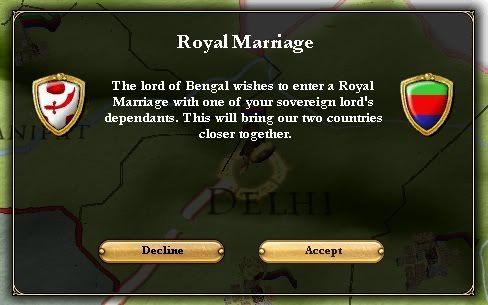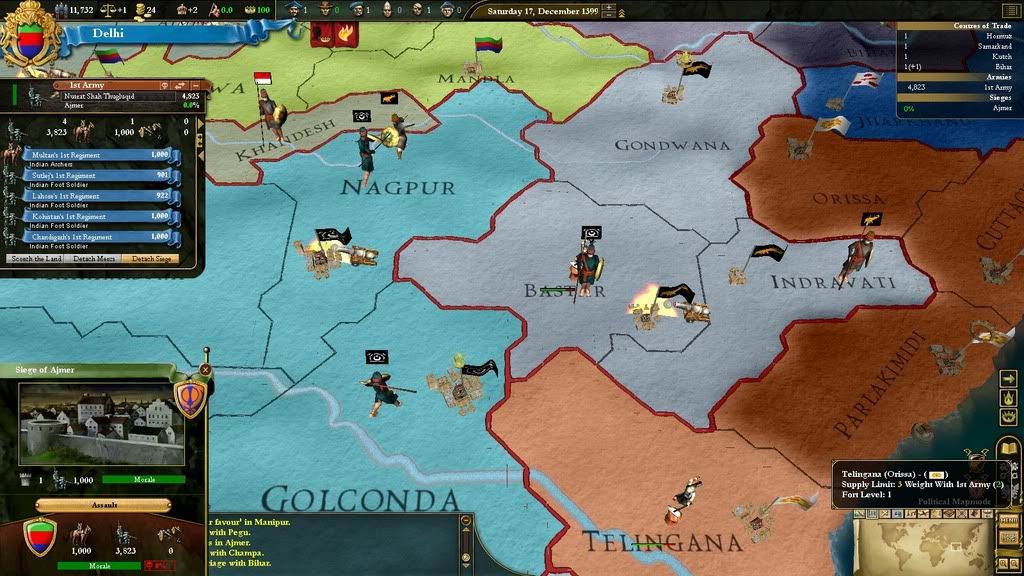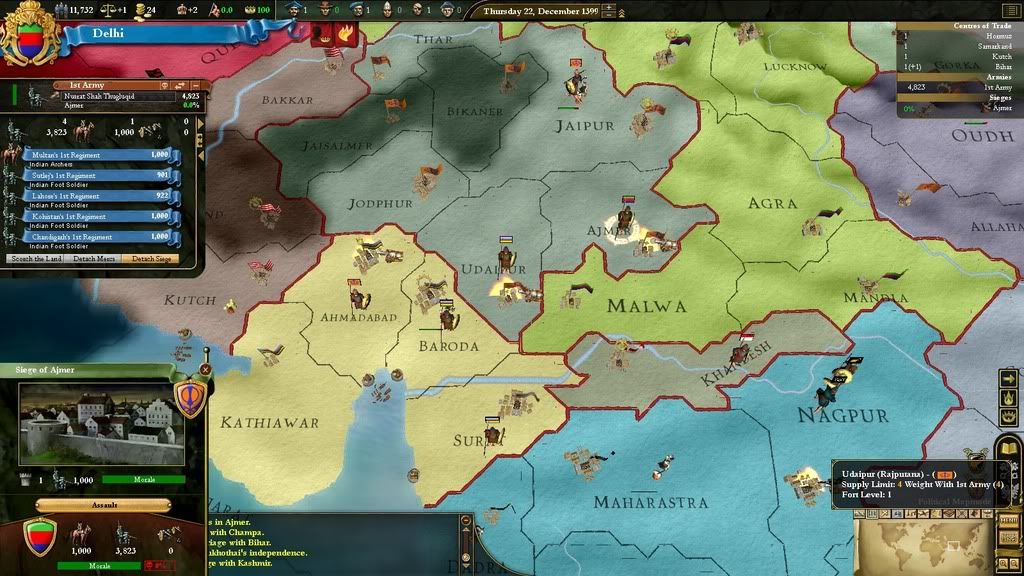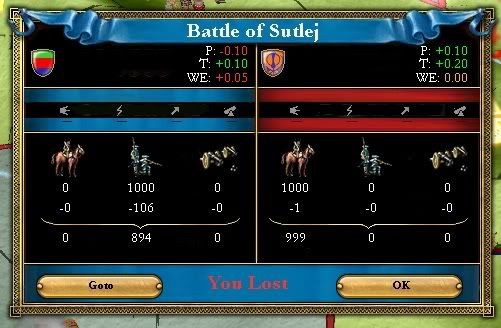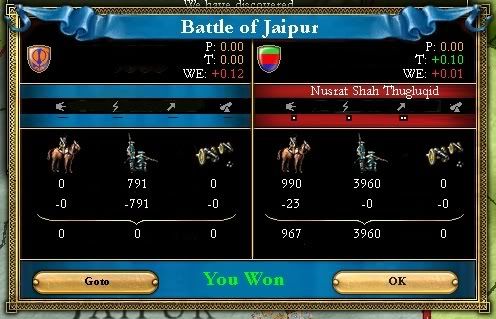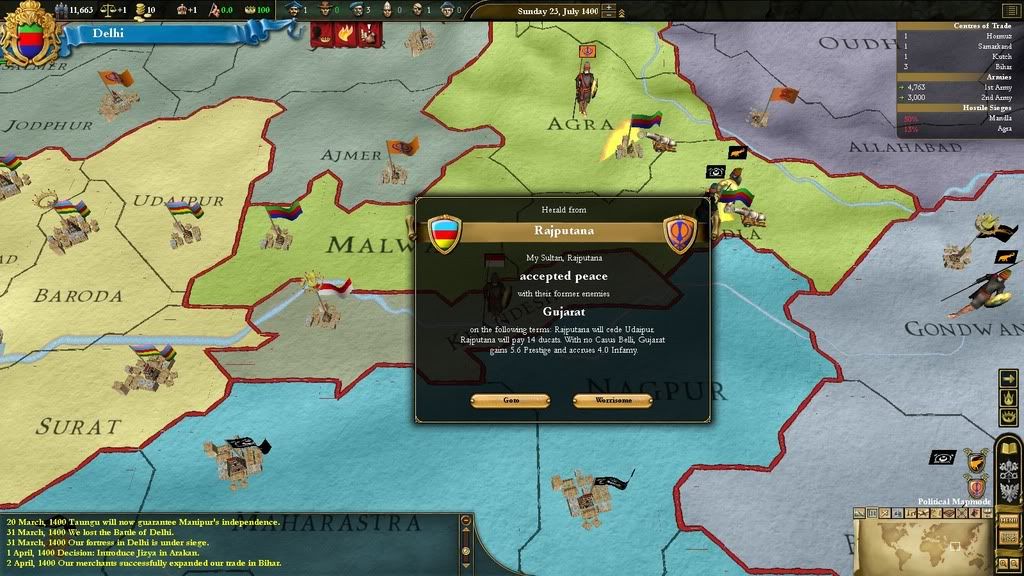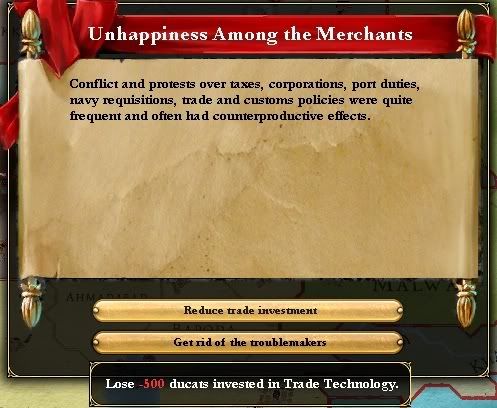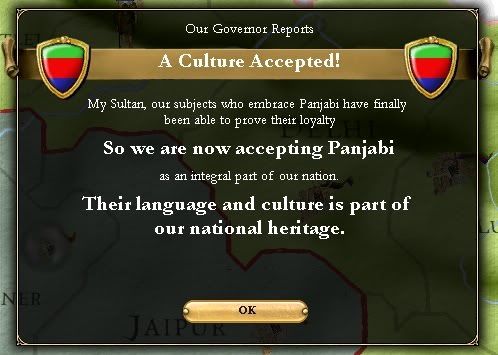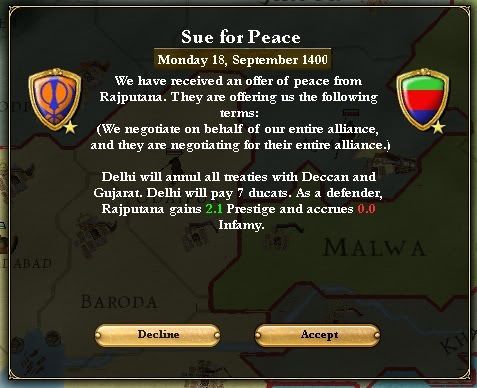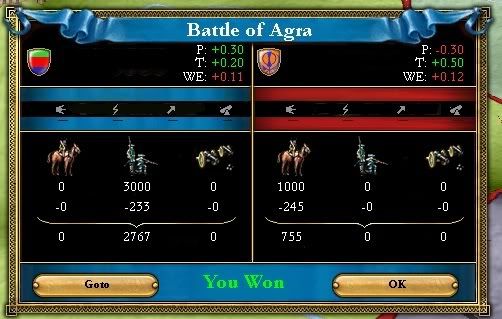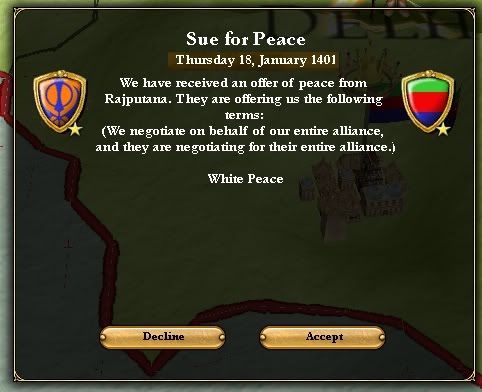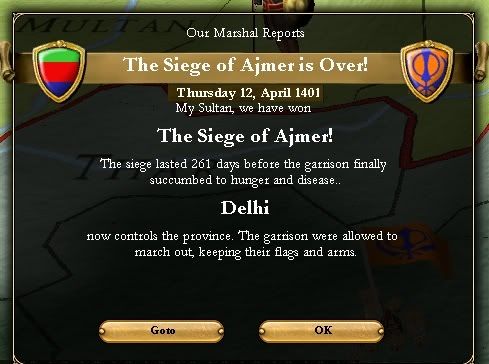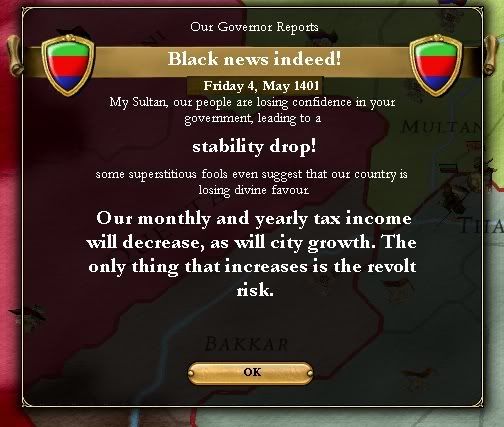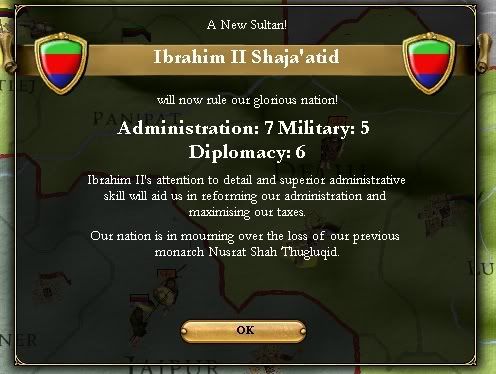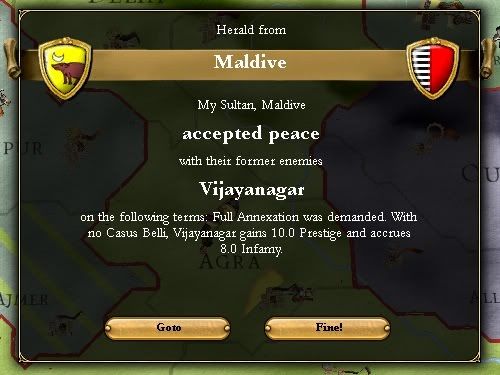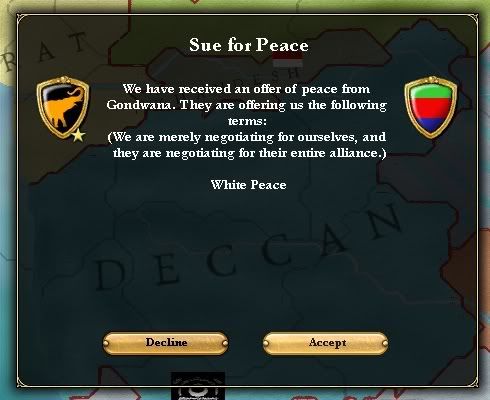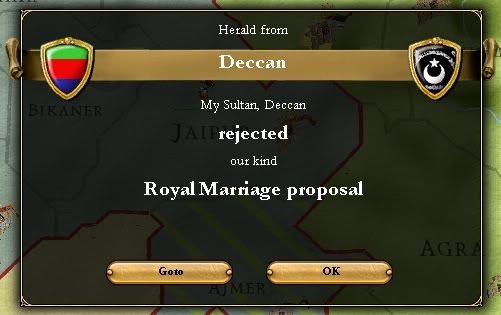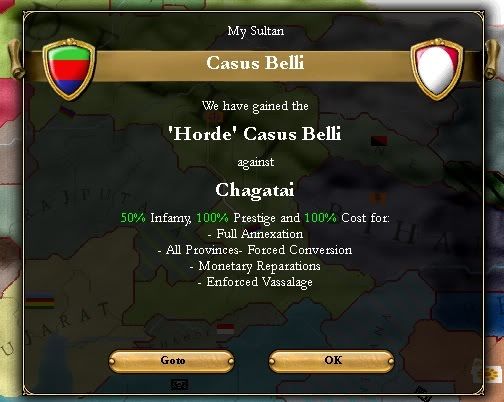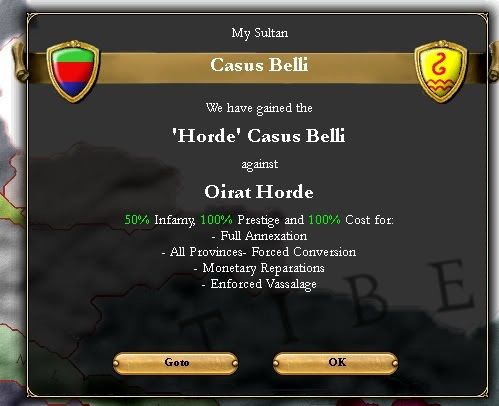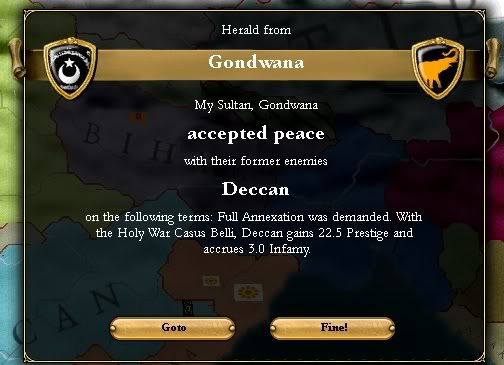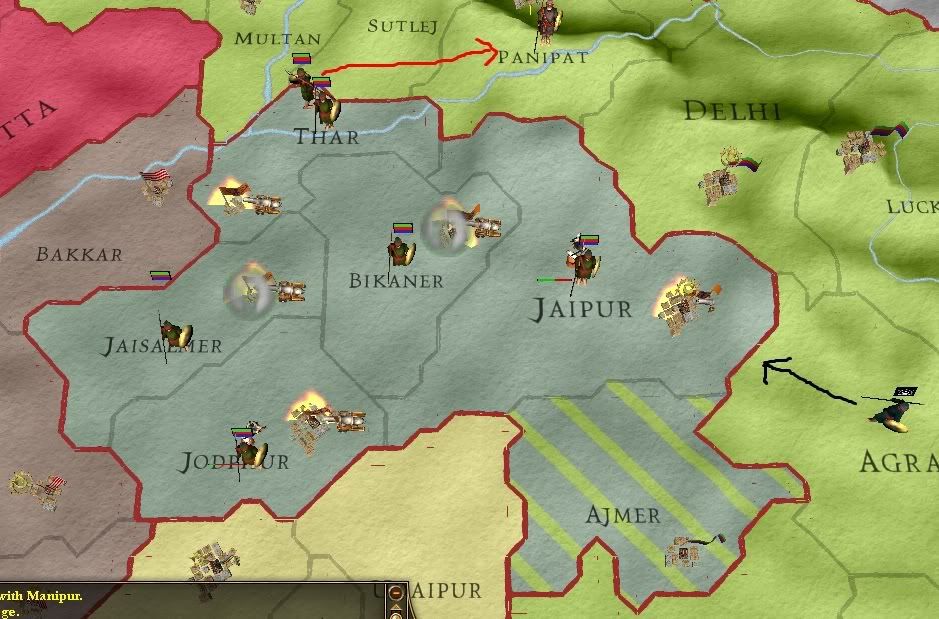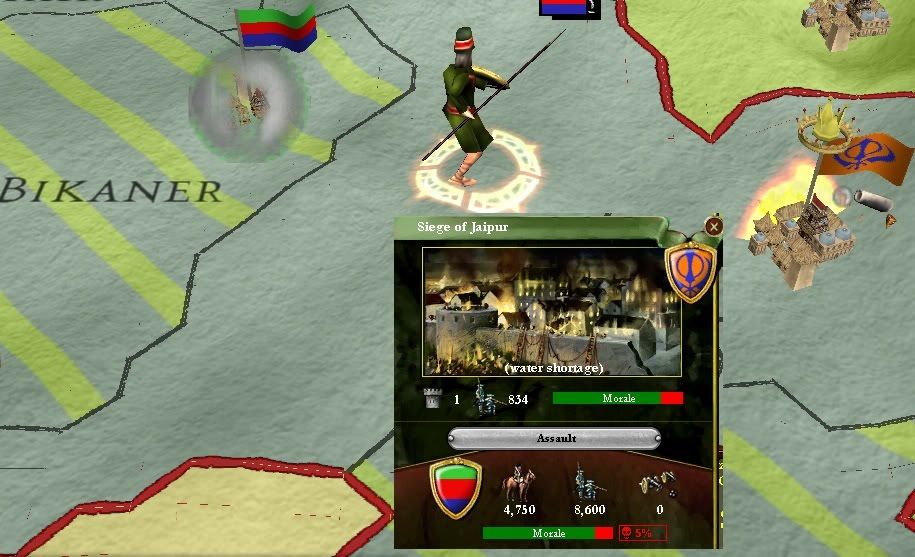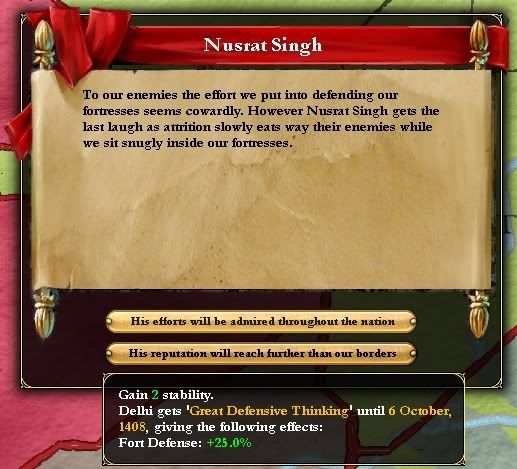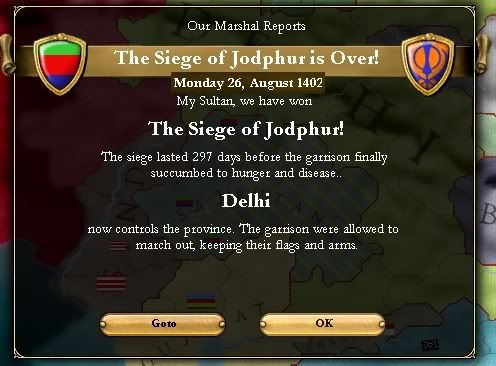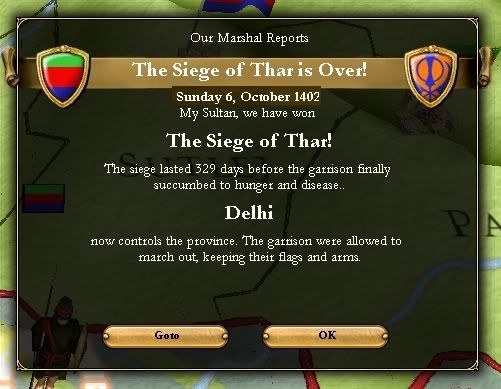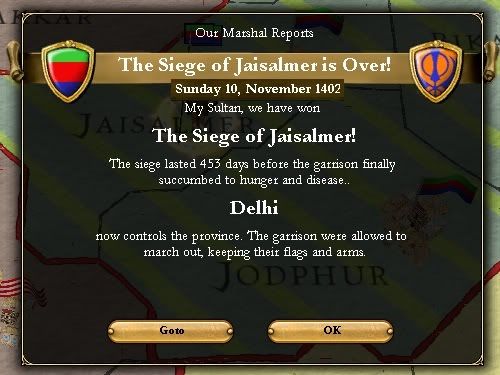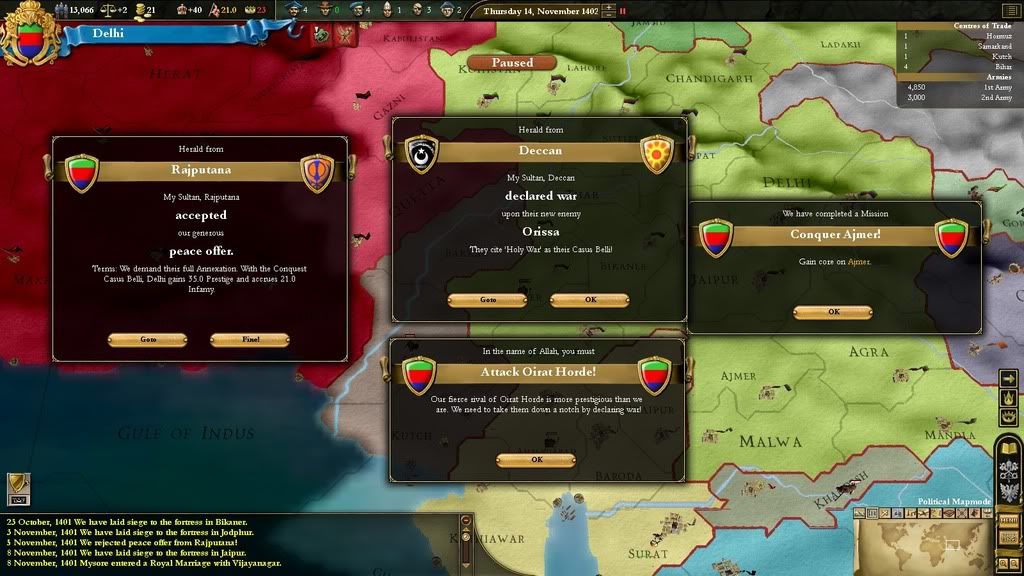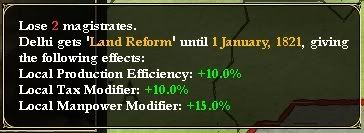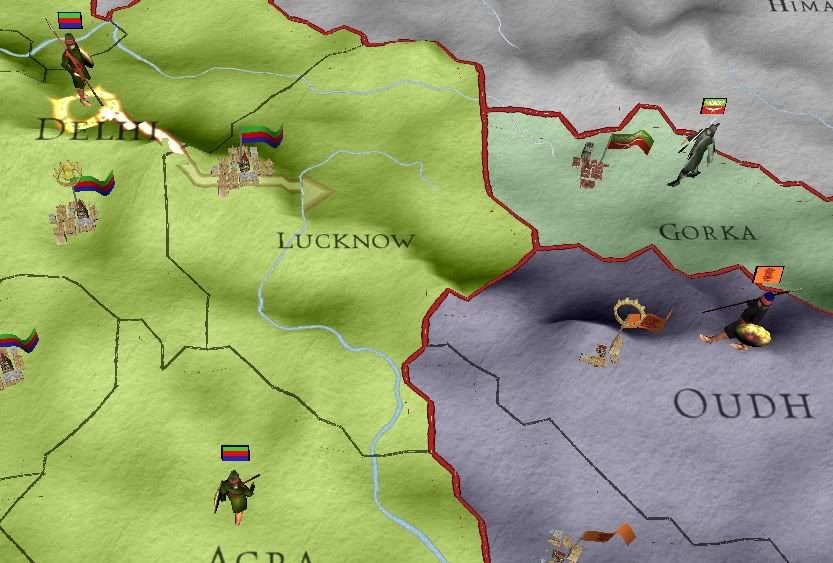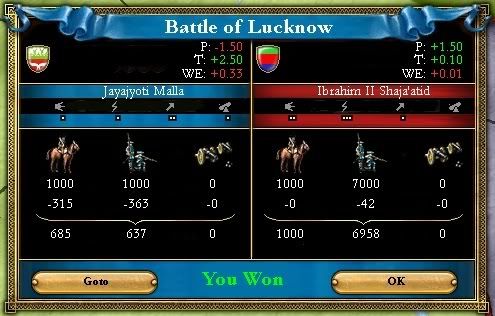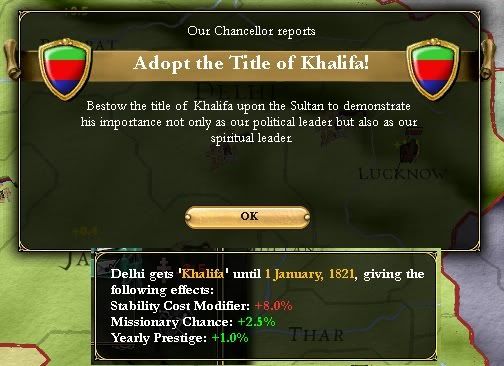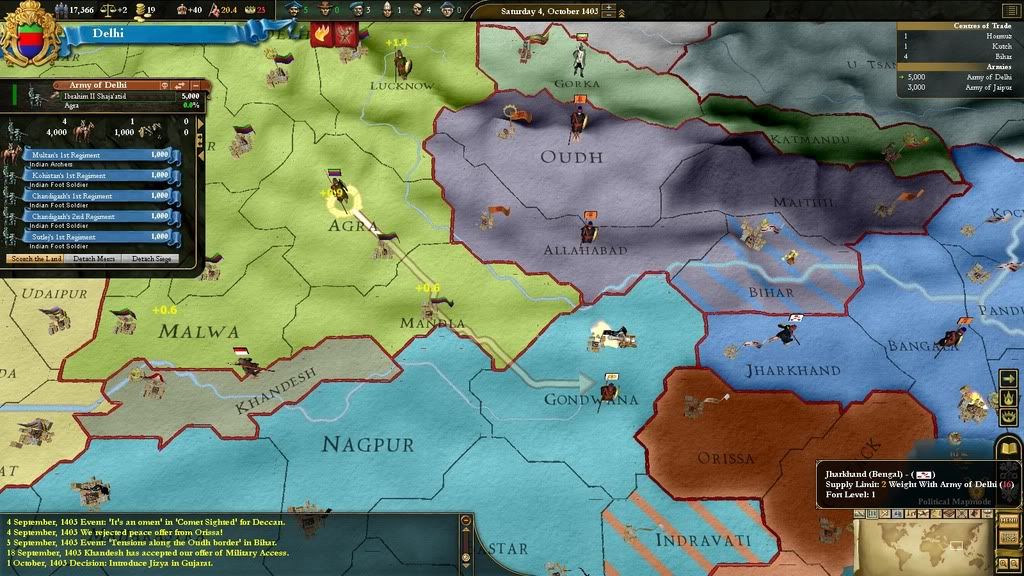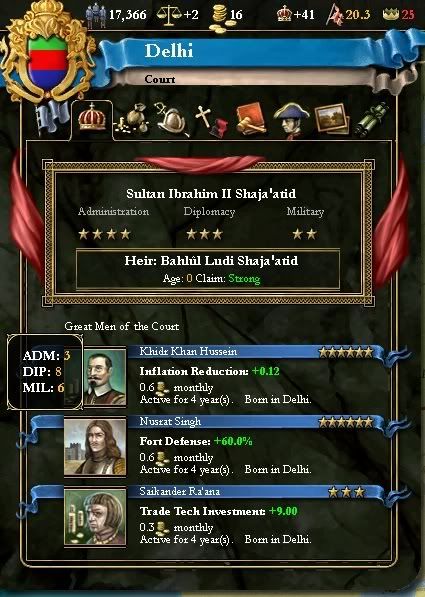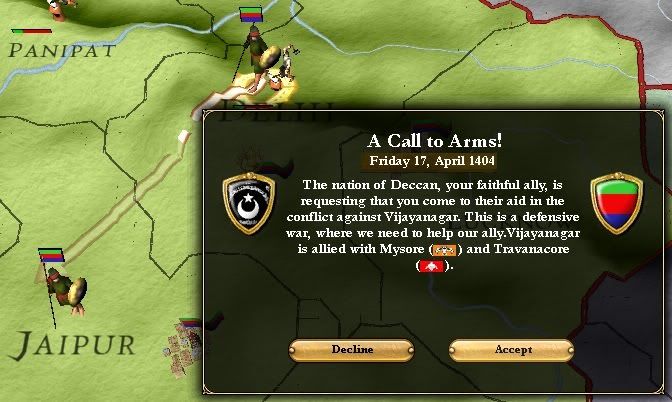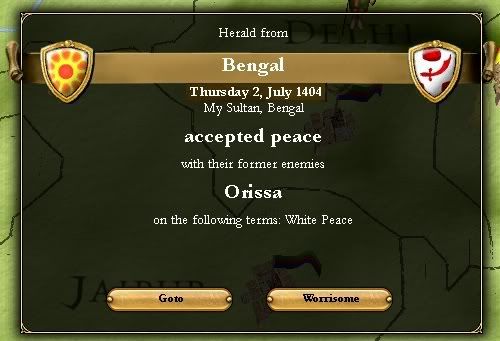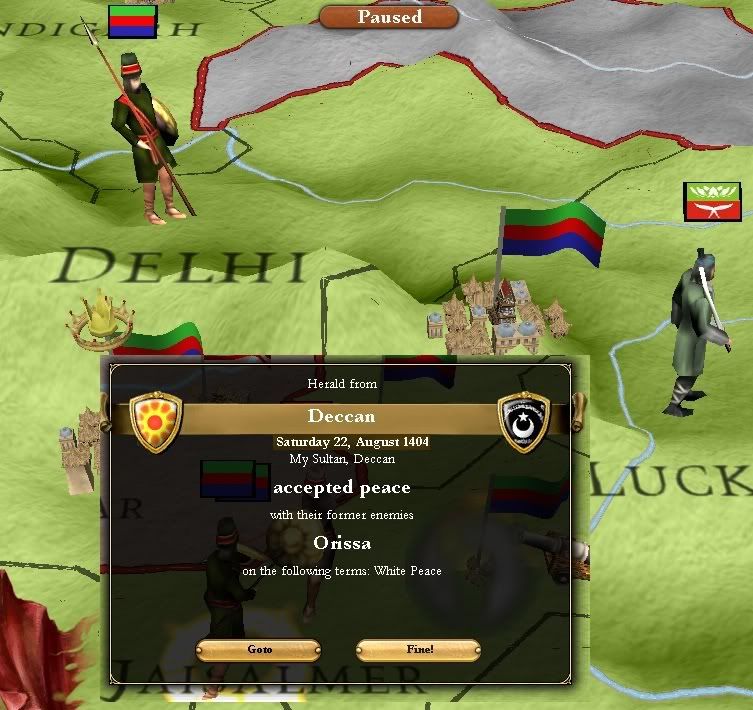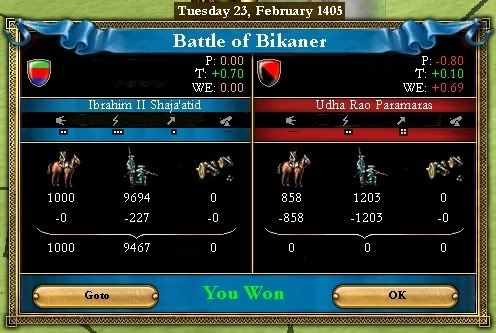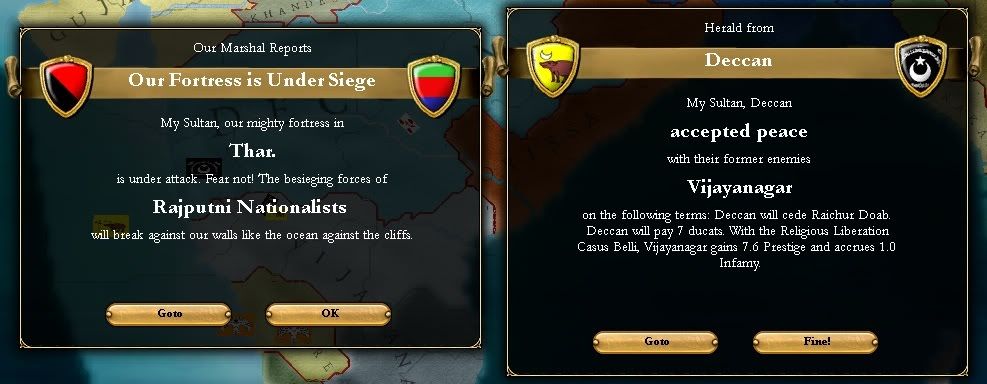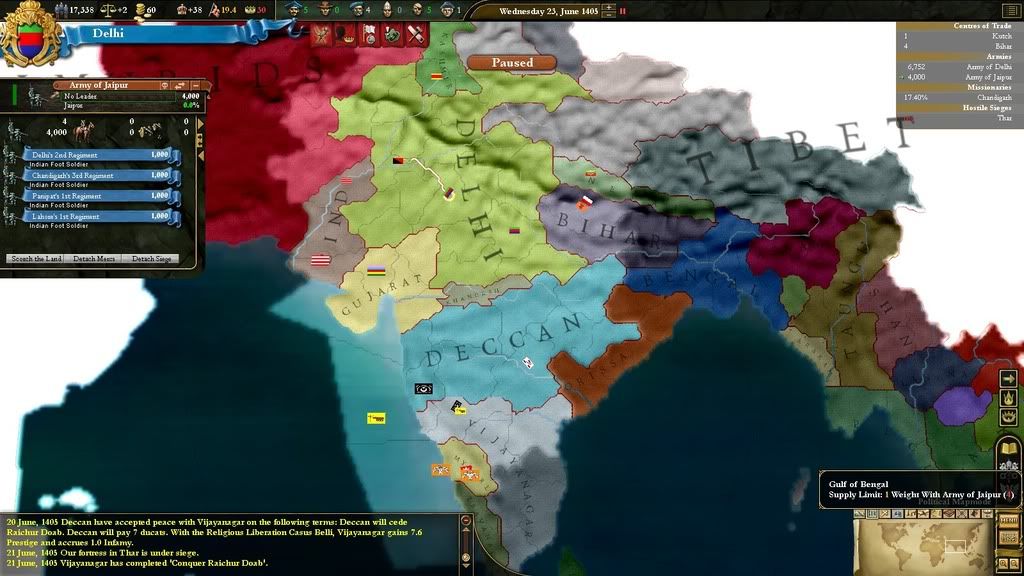It’s Always Sunni in Delhi
Introduction
Hello all and welcome to It’s Always Sunni in Delhi! This is my first AAR and indeed only my fourth ever game playing Europa Universalis, as well as my first game where I do not play a European nation, so it’s going to be something of a learning experience on all fronts! As a warning, style is going to be one of those – this is probably going to spend most of the time teetering between a simple record of gameplay and short sections of narrative, and very indecisively will it be teetering until I figure out a style that works for me.
I will, as the title rather forcefully suggests, be playing as Delhi, because it looks interesting at first glance – backed up against the Timurids and the Himalayas on the edge of India, Sunni but with a Hindu population and moderate in size to begin with compared to its neighbours (‘cept, of course, the Timmies). I don’t have any long-term goals as of yet, but the dream would be to eradicate Hinduism from the face of the earth and defend India from the heathen Europeans when they start turning up. I have no idea how feasible either of these goals are, but I’m sure that will contribute to the fun!
Comments and criticism are especially welcome, be it in the form of advice for the AAR or the game itself. And now, without further ado, let’s get down to business.
--
Prologue: The Sultan’s Dream.
Sultan Nusrat Shah Thuqluqid had ruled Delhi for five years by now, and as he lay in bed that morning, he mused that they had been wonderfully mediocre. The economy – okay.
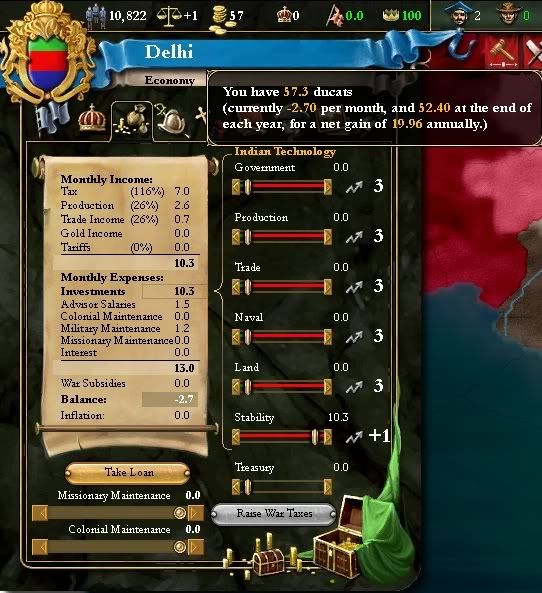
The people – none too rebellious, even if they were all heretics.
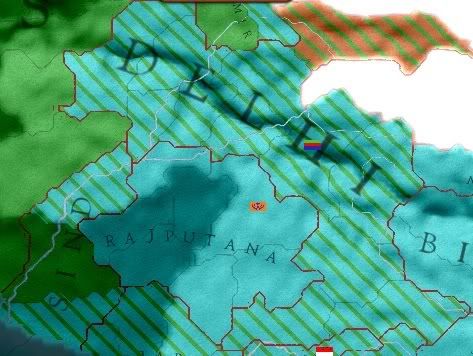
The neighbours – cordial and courteous, to be sure, but there was no real spark. Even his court were a little passive. When he had come to the throne, he’d assumed that he was entering a whirlwind of intrigue and plots, where ministers would be backstabbing each other at the drop of a turban and it would take all his wit to ensure he didn’t end up a powerless figurehead being manipulated and outmanoeuvred by his supposed subordinates. Finding out that this was not the case had at first been disappointing, but as time passed he had actually come to like the sedentary aspects of his position. Nusrat Shah the Silent, they called him (or so his advisors told him), because only issued royal proclamations after a great deal of deliberation.
But this morning, he realised, he was bored. And he had been for some time. The lack of excitement had finally reached a critical point where it had gone on for too long, and he was going to do something about it. As soon as he had breakfast. On second thoughts, the rest of the court wouldn’t convene until after lunch, so he could probably wait until then.
Several hours later, Khidr Khan Hussein, the head of the Treasury, was surprised to find the Sultan already sitting on the throne when he slipped into the throne room shortly after noon. He made his obeisance, and – when Nusrat Shah had given permission – approached the throne.
“Your majesty, is there a reason that the court is graced with your presence this early?”
“As ever, my good chancellor, you are as perceptive as a hawk. Summon General Singh, and have him bring his maps.”
Nusrat Singh was not actually a soldier, but a learned military architect in charge of keeping Delhi’s fortifications strong and borders secure. The Sultan, however, judged him to have the best military mind in the nation, and so had made him the chief representative of the Army of Delhi in his court. When Hussein and Singh returned carrying rolled up maps, the Sultan stepped down to the great table as they spread them out.
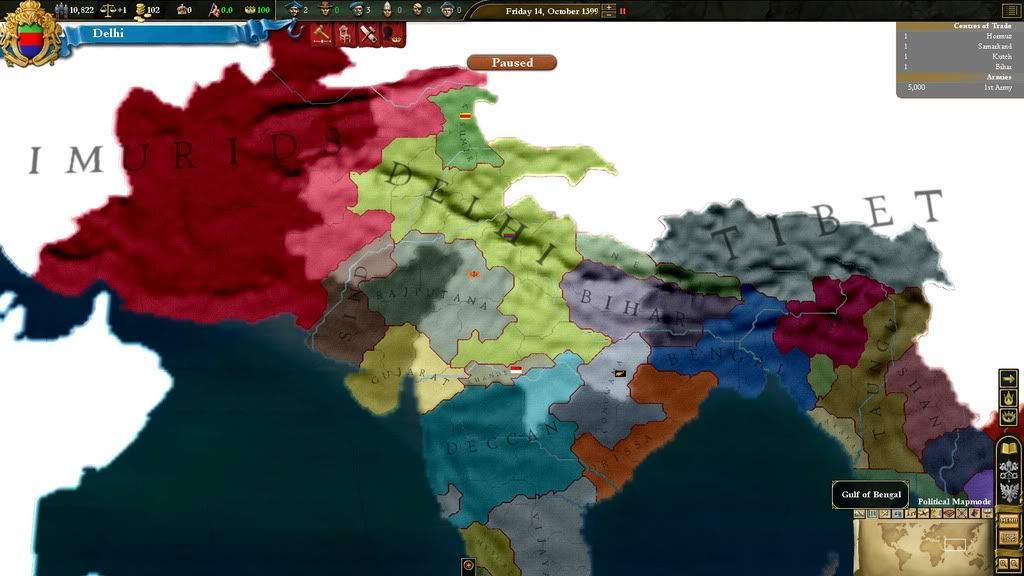
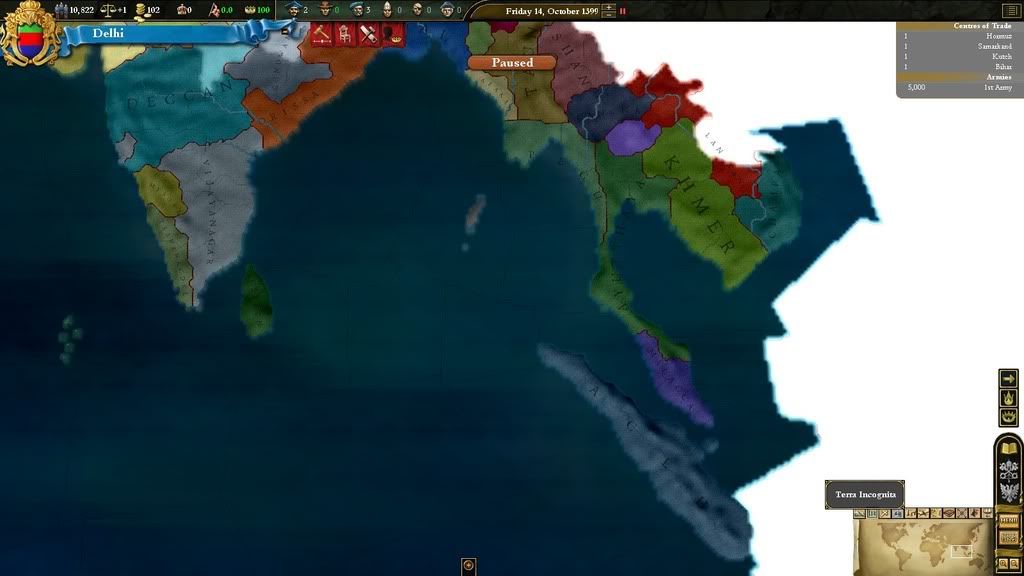
This was the known world at the time, and Delhi was at its edge. To the north were the Abode of Snow, the Himalayas, and at the time it was fashionable to call them the World’s End Mountains. To the west, the Horde of the Great Khan Timur, whose lands stretched beyond the Sultan’s knowledge in the direction of the Holy Mecca. But everywhere else, as far as the Sultan could see on the maps, were petty kingdoms, few of them followers of the True Faith and equally few, at least in this cartographer’s rendering, of a comparable size with Delhi. The Sultan scratched his beard, and then turned to the rest of the room – it had started to fill up as the rest of his court arrived.
“See the lands that surround us!” called the Sultan, and the energy in his voice and his eyes surprised many in the court. “None of them are our equal. The only nation that can claim to be such is that of Khan Timur, and I say to you now that is because God has seen his faith and has justly rewarded him! My loyal servants, I know you have all made your submission to the true faith, but our people have not – nowhere across all these lands have they seen the light of Allah!”
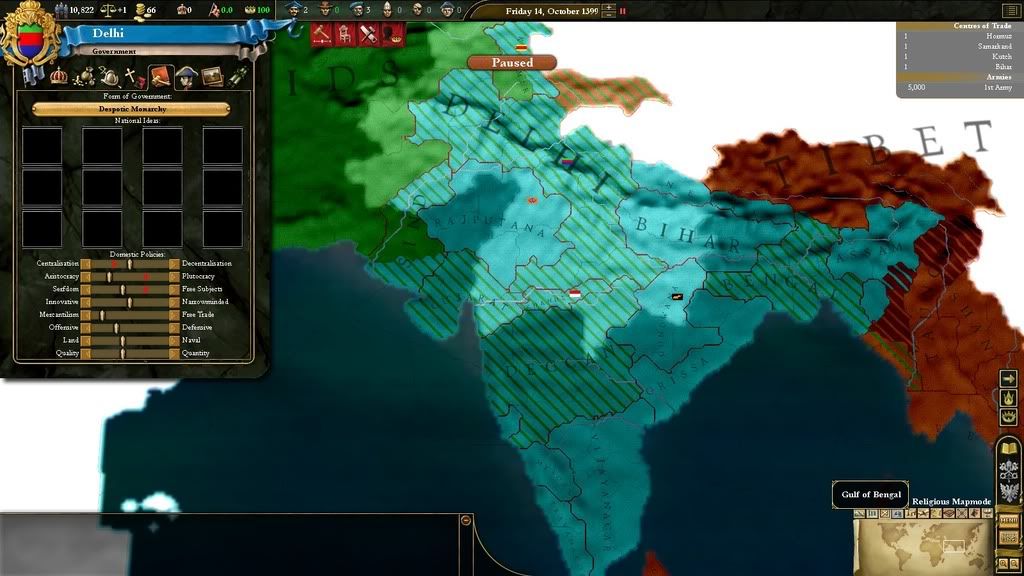
“Actually, in Sind –” began one minor noble, but a swift elbow to the stomach from the man beside him shut him up.
“I say to you now, last night I had a dream! An angel visited me and told me that happiness and glory await us, in this life and the next, for all sons of Delhi that serve Delhi and Allah in spreading the word of the Prophet peacebuponhim to all corners of the world! To that effect, I am introducing a jizya, and will be forging alliances with the other great Muslim kingdoms of Deccan and Gujarat, in preparation to invade the Hindu scum of Rajputana! Today the world changes! It is up to you to play you part!” He clapped his hands, and at that symbol the court sprang to activity, all the princes and nobles and ministers scurrying away – nominally to help roll out the new tax across their realms and prepare their levies for the Sultan’s army, but more to look busy and eager than anything else. After all, it was nearly time for dinner. This business could wait until tomorrow.
Only Hussein, Singh, and the trader Saikander Ra’ana, Nusrat Shah’s most trusted advisors, stayed in the throne room.
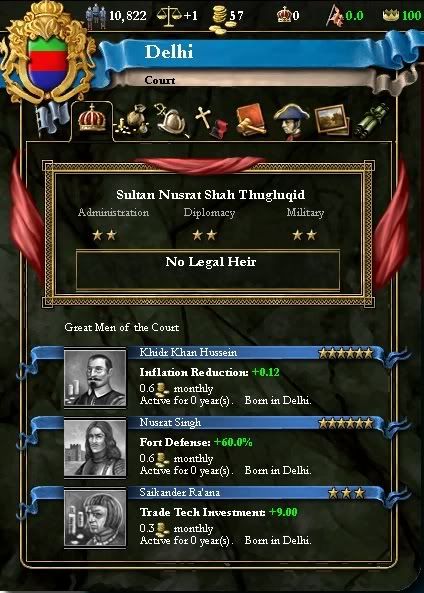
“That business about the dream –” said Singh softly.
“Utter nonsense,” the Sultan declared flatly. “I am doing this for Delhi and Delhi alone. The Timurids are a threat as much as they are a role model, as are the Hindu kingdoms if they choose to unite against the few Sultans in their midst. We must make the first move, or I fear our name will be that of a weak, indecisive nation in a footnote of history, that could not seize an opportunity when so presented. In fact, I have decided that that opportunity has turned up in the form of Rajputana – specifically, their province of Ajmer, which has a sizeable Hindusthani population. But the people will need some sort of hogwash sugar-coating in order to realise this.”
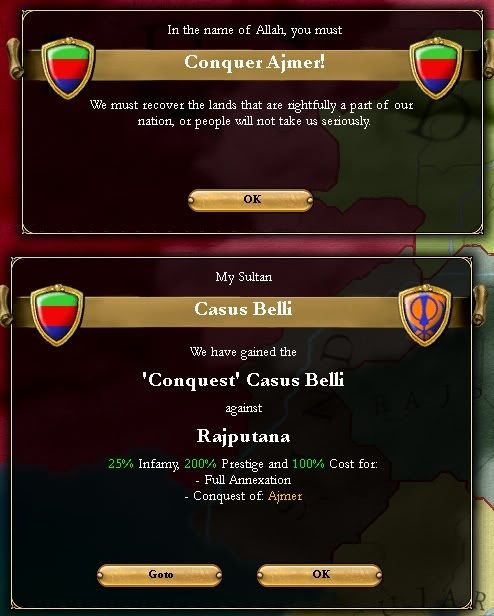
The next day, the Sultan’s Super Swift Carrier Pigeon Communication Service tendered alliance offers to the Sultans of Deccan and Gujarat, both of whom were eventually swayed by Nusrat Shah’s arguments that a united Muslim front in India was necessary to ensure their safety. Deccan, however, did not want Delhi dictating the terms of their alliance, and it took several SSSCPCS exchanges for an agreement to be reached – Deccan was preparing to invade neighbouring Gondwana, and wanted Delhi’s assurance that they would support them in this war if Deccan would send troops to Rajputana.

Four days later, everything was in place. The Army of Delhi, comprising four thousand infantry and a thousand cavalry, was assembled outside the walls of Delhi, and Sultan Nusrat Shah rode out of the gates of his palace, through the city streets and out to his loyal forces to the cheers of the crowd. He carried with him a cage containing three SSSCPCS pigeons – one to carry the declaration of war to Jaipur, and one to each of Delhi’s allies announcing that war was underway.
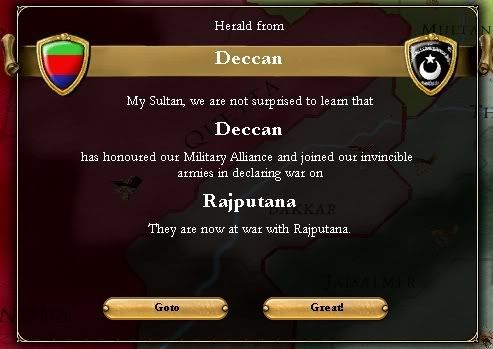
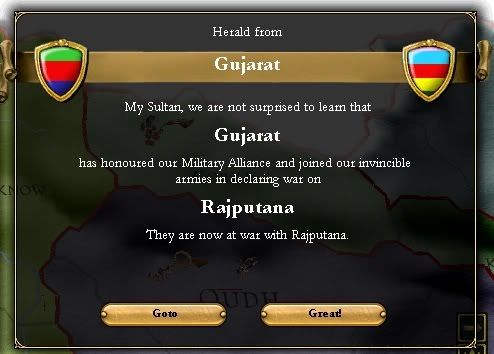
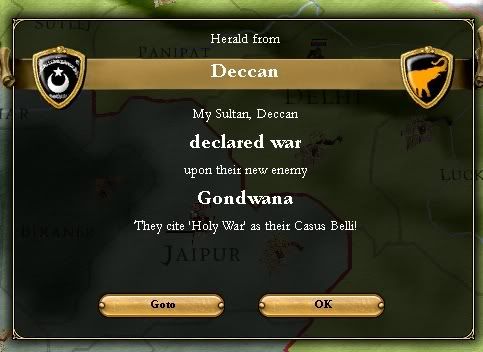
With a flourish, the Sultan cut the cords tying the box closed and the birds took to the air. Pointing his sword to the sky after the bird with the red ribbon around his neck, the Sultan dug his heels into his horse and made it rear theatrically.
“We follow the bird. To Jaipur!” he roared. Five thousand voices shouted “To Jaipur!” back, and then the whole host was marching south, towards the plains beneath the Worlds End Mountains, their unsuspecting foe, and glory – or death.
Introduction
Hello all and welcome to It’s Always Sunni in Delhi! This is my first AAR and indeed only my fourth ever game playing Europa Universalis, as well as my first game where I do not play a European nation, so it’s going to be something of a learning experience on all fronts! As a warning, style is going to be one of those – this is probably going to spend most of the time teetering between a simple record of gameplay and short sections of narrative, and very indecisively will it be teetering until I figure out a style that works for me.
I will, as the title rather forcefully suggests, be playing as Delhi, because it looks interesting at first glance – backed up against the Timurids and the Himalayas on the edge of India, Sunni but with a Hindu population and moderate in size to begin with compared to its neighbours (‘cept, of course, the Timmies). I don’t have any long-term goals as of yet, but the dream would be to eradicate Hinduism from the face of the earth and defend India from the heathen Europeans when they start turning up. I have no idea how feasible either of these goals are, but I’m sure that will contribute to the fun!
Comments and criticism are especially welcome, be it in the form of advice for the AAR or the game itself. And now, without further ado, let’s get down to business.
--
Prologue: The Sultan’s Dream.
Sultan Nusrat Shah Thuqluqid had ruled Delhi for five years by now, and as he lay in bed that morning, he mused that they had been wonderfully mediocre. The economy – okay.

The people – none too rebellious, even if they were all heretics.

The neighbours – cordial and courteous, to be sure, but there was no real spark. Even his court were a little passive. When he had come to the throne, he’d assumed that he was entering a whirlwind of intrigue and plots, where ministers would be backstabbing each other at the drop of a turban and it would take all his wit to ensure he didn’t end up a powerless figurehead being manipulated and outmanoeuvred by his supposed subordinates. Finding out that this was not the case had at first been disappointing, but as time passed he had actually come to like the sedentary aspects of his position. Nusrat Shah the Silent, they called him (or so his advisors told him), because only issued royal proclamations after a great deal of deliberation.
But this morning, he realised, he was bored. And he had been for some time. The lack of excitement had finally reached a critical point where it had gone on for too long, and he was going to do something about it. As soon as he had breakfast. On second thoughts, the rest of the court wouldn’t convene until after lunch, so he could probably wait until then.
Several hours later, Khidr Khan Hussein, the head of the Treasury, was surprised to find the Sultan already sitting on the throne when he slipped into the throne room shortly after noon. He made his obeisance, and – when Nusrat Shah had given permission – approached the throne.
“Your majesty, is there a reason that the court is graced with your presence this early?”
“As ever, my good chancellor, you are as perceptive as a hawk. Summon General Singh, and have him bring his maps.”
Nusrat Singh was not actually a soldier, but a learned military architect in charge of keeping Delhi’s fortifications strong and borders secure. The Sultan, however, judged him to have the best military mind in the nation, and so had made him the chief representative of the Army of Delhi in his court. When Hussein and Singh returned carrying rolled up maps, the Sultan stepped down to the great table as they spread them out.


This was the known world at the time, and Delhi was at its edge. To the north were the Abode of Snow, the Himalayas, and at the time it was fashionable to call them the World’s End Mountains. To the west, the Horde of the Great Khan Timur, whose lands stretched beyond the Sultan’s knowledge in the direction of the Holy Mecca. But everywhere else, as far as the Sultan could see on the maps, were petty kingdoms, few of them followers of the True Faith and equally few, at least in this cartographer’s rendering, of a comparable size with Delhi. The Sultan scratched his beard, and then turned to the rest of the room – it had started to fill up as the rest of his court arrived.
“See the lands that surround us!” called the Sultan, and the energy in his voice and his eyes surprised many in the court. “None of them are our equal. The only nation that can claim to be such is that of Khan Timur, and I say to you now that is because God has seen his faith and has justly rewarded him! My loyal servants, I know you have all made your submission to the true faith, but our people have not – nowhere across all these lands have they seen the light of Allah!”

“Actually, in Sind –” began one minor noble, but a swift elbow to the stomach from the man beside him shut him up.
“I say to you now, last night I had a dream! An angel visited me and told me that happiness and glory await us, in this life and the next, for all sons of Delhi that serve Delhi and Allah in spreading the word of the Prophet peacebuponhim to all corners of the world! To that effect, I am introducing a jizya, and will be forging alliances with the other great Muslim kingdoms of Deccan and Gujarat, in preparation to invade the Hindu scum of Rajputana! Today the world changes! It is up to you to play you part!” He clapped his hands, and at that symbol the court sprang to activity, all the princes and nobles and ministers scurrying away – nominally to help roll out the new tax across their realms and prepare their levies for the Sultan’s army, but more to look busy and eager than anything else. After all, it was nearly time for dinner. This business could wait until tomorrow.
Only Hussein, Singh, and the trader Saikander Ra’ana, Nusrat Shah’s most trusted advisors, stayed in the throne room.

“That business about the dream –” said Singh softly.
“Utter nonsense,” the Sultan declared flatly. “I am doing this for Delhi and Delhi alone. The Timurids are a threat as much as they are a role model, as are the Hindu kingdoms if they choose to unite against the few Sultans in their midst. We must make the first move, or I fear our name will be that of a weak, indecisive nation in a footnote of history, that could not seize an opportunity when so presented. In fact, I have decided that that opportunity has turned up in the form of Rajputana – specifically, their province of Ajmer, which has a sizeable Hindusthani population. But the people will need some sort of hogwash sugar-coating in order to realise this.”

The next day, the Sultan’s Super Swift Carrier Pigeon Communication Service tendered alliance offers to the Sultans of Deccan and Gujarat, both of whom were eventually swayed by Nusrat Shah’s arguments that a united Muslim front in India was necessary to ensure their safety. Deccan, however, did not want Delhi dictating the terms of their alliance, and it took several SSSCPCS exchanges for an agreement to be reached – Deccan was preparing to invade neighbouring Gondwana, and wanted Delhi’s assurance that they would support them in this war if Deccan would send troops to Rajputana.

Four days later, everything was in place. The Army of Delhi, comprising four thousand infantry and a thousand cavalry, was assembled outside the walls of Delhi, and Sultan Nusrat Shah rode out of the gates of his palace, through the city streets and out to his loyal forces to the cheers of the crowd. He carried with him a cage containing three SSSCPCS pigeons – one to carry the declaration of war to Jaipur, and one to each of Delhi’s allies announcing that war was underway.



With a flourish, the Sultan cut the cords tying the box closed and the birds took to the air. Pointing his sword to the sky after the bird with the red ribbon around his neck, the Sultan dug his heels into his horse and made it rear theatrically.
“We follow the bird. To Jaipur!” he roared. Five thousand voices shouted “To Jaipur!” back, and then the whole host was marching south, towards the plains beneath the Worlds End Mountains, their unsuspecting foe, and glory – or death.
Last edited:


